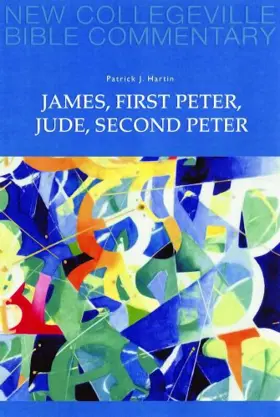

James, First Peter, Jude, Second Peter
in New Collegeville Bible Commentary
Pages
76
Publisher
Liturgical Press
Published
4/1/2006
ISBN-13
9780814628690
Distributor: Spring Arbor/Ingram Author: P. J. Hartin Format: 76 pages, paperback ISBN: 9780814628690
Collections
This book appears in the following featured collections.
- Commentaries by Roman Catholic Scholars by John Dyer
Reviews
Collegeville, Minn.: Liturgical Press, 2005. Pp. 76. Paper. $6.95. ISBN 0814628699. Karl-Wilhelm Niebuhr Friedrich-Schiller-Universität Jena, Germany This very brief commentary on the Catholic Epistles (excluding the Johannine letters) is not a scholarly publication but a very helpful aid for private reading of the Bible or for Bible study groups. Every section begins with introductory remarks regarding the author, the hearers/readers, the genre and purpose, and major themes or thoughts of the letter in question. Then follow a translation, taken from the New American Bible, and explanatory comments to every section. At the end of the book there are to be found “review aids and discussion topics” for every letter, with references to the respective pages of the commentary that invite readers to an active participation in the process of reading and understanding Scripture. An index of citations from the Catechism of the Catholic Church points to the intended audience of the commentary series. Topics of the comments are mainly explanations of the structure and the contents of every letter and its theological meaning, with special regard to the Old Testament background of certain passages or expressions. There are no footnotes and no references to any scholarly literature, neither exegetical nor theological (the only reference I have found is on page 8 to the commentary on James by the author himself). The introductions include information about problems of authorship in modern exegesis, with the result that for all letters a pseudepigraphic authorship is cautiously supposed.
[Full Review]
